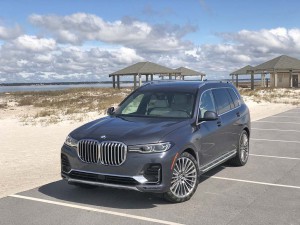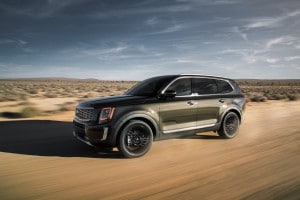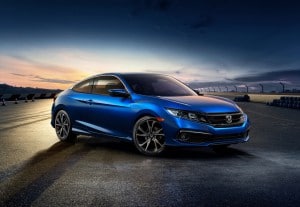
BMW, which rolled out its new large ute earlier this year, is expected to see a sales increase in November.
The final total of new vehicle sales in November could depend on what happens on the days after Thanksgiving.
“Black Friday is one of the biggest sales days in retail, and automotive retail is no different,” said Eric Lyman, Chief Industry Analyst for ALG, a subsidiary of TrueCar. “Black Friday marks the beginning of the busy end-of-year car buying season with automakers and dealers sweetening their deals making it one of the best days for consumers to buy. Like with recent years, most automakers pulled forward Black Friday deals into the beginning of November to help spur retail sales.”
Charlie Chesbrough, senior economist at Cox Automotive, noted the question for the market in November is whether GM fleet activity, and likely some retail, disrupted by factory closures last month were simply delayed, replaced or canceled. His team expects November volume to finish near 1.39 million units, down slightly from last year.
(Skip the deals on TVs and toys, get a new car on Black Friday)
The sales pace is expected to decline from last year’s 17.4 million level to 16.9 million this year, which up from last month’s strike-impacted 16.5 million level, but down slightly from the current 2019 year-to-date pace near 17 million, Chesbrough added.
Total sales through October 2019 are down 1.4% compared with last year, according to Cox, and this negative trend is expected to continue. Sales volume, supported by an extra selling day, is expected to finish down 0.4% compared to November 2018. Sales, however, will be up nearly 4% from last month.
True Car Inc.’s data and analytics subsidiary, ALG, projects total new vehicle sales will reach 1,399,639 units in November, down 3% from a year ago when adjusted for the same number of selling days. This month’s seasonally adjusted annualized rate or SAAR for total light vehicle sales is an estimated 16.9 million units, the group noted.
The analysts from Cox estimate one key factor will be incentives, which generally rise at the end of the year as OEMs try to push old inventory to make way for new products. Black Friday and year-end sales promotions have become an important part of the sell-down strategy and are even more important in a downward moving retail market.
Fleet activity is not only an important question for November sales, but also for the industry outlook going into 2020. Fleet sales are up significantly in 2019, as they were in 2018, and these gains have been supporting an otherwise declining new-car market. With significantly higher fleet deliveries throughout the last two years, further growth in 2020 will be challenging. However, without it, the vehicle market could fall significantly, according to Cox.

Kia is playing catch up when it comes to its sport-utility line-up. The new Telluride is a big move in that direction.
(The best way to travel for Thanksgiving this year)
Retail sales – both leasing and purchasing – are down this year, as they were in 2018. Increasing retail sales at this late stage of the current sales cycle also seems unlikely, particularly with vehicle prices and discounts already elevated.
“Economic fundamentals remain solid with November auto sales continuing to follow a similar trend as previous months in 2019 with a slight year-over-year decline,” said Oliver Strauss, chief economist at ALG, a subsidiary of TrueCar. “Consumers are continuing to purchase vehicles yet at a more cautious rate than in previous years due to ongoing tariff and recession uncertainty.”
Among mainstream brands, Honda stood out for total sales, up 5.6% year-over-year, buoyed by an increase in incentive spend and fleet sales. Typically known for its discipline, Honda has increased incentive spend throughout 2019 but maintains a lower dollar spend than most other manufacturers.
Hyundai and Kia continue to perform well, up 7.8% and 6.1%, respectively, compared with year-ago results, led by the new Palisade and Telluride utilities and other new vehicles.
For the luxury brands, BMW had a strong month with a 4.4% same month sales increase and Mercedes-Benz stood out again, up 3.1% on total sales and 5.3% on retail while lowering incentives.
Tesla is expected to be up month-over-month but down year-over-year given difficult compares from last year’s surge in buyers hoping to secure the last of their federal EV credits.
(Tesla logs 200,000 pre-orders for new Cybertruck)
Nissan is forecast to be down 12.4% in total unit sales compared to a year ago with losses expected from both its Infiniti luxury brand as well as its mainstream Nissan brand. Meanwhile, FCA is expected to be down 9.2%, which is primarily attributed to aging product and a decrease in fleet sales. General Motors and Ford sales also are expected to decline.


